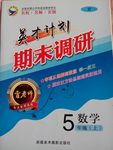题目内容
-Is this stick long enough?
-No, I need one ________.
- A.twice so long
- B.so long twice
- C.twice as long
- D.as long twice
此题是“I need one twice as long as this one”的省略形式。

 名师点拨卷系列答案
名师点拨卷系列答案 英才计划期末调研系列答案
英才计划期末调研系列答案Ifhas anyone noticed how, with the passage of time, one’s relationship with one’s grown-up daughters and sons becomes changed? I’ve been aware of this for some time but I’m not quite sure how to deal with it.
Take the kitchen sink for example.
Following a family get-together at my place, I walked into the kitchen to find Kate, my daughter, carefully cleaning the sink.
“Don’t do that; what are you doing that for?” I said, unhappy about the hidden criticism.
“Mum,” she said, “you really ought to put your glasses on when you clean the sink. Behind the tap here was black!”
But it’s not just things like kitchen sinks. Another time Kate arrived to pick me up to lunch. She looked at me and then asked, “Mum, why do you use brown eyebrow pencil when your hair is grey?”
A sudden memory of her, aged 14, going to her first mixed party flooded back. She had come in to say goodbye. For a moment I thought she’d been an accident. Both eyes were black. I remember suggesting that perhaps a little less eye make-up might be more effective.
Now I told her, “My hair used to be brown.”
“It looks absurd.(荒唐)”
“Mrs. Menzies had dark eyebrows with grey hair.”
“Yes, but you’re not Mrs. Menzies, are you?” she said triumphantly, as if that proved her point.
But a recent event made me realize that something really must be done.
She had returned home for a few weeks before getting married. One evening I went out on a dinner date. By the time my companion left me at the front door, it was about 2am. As I stepped in, an angry figure in a white nightgown(睡衣)stopped me.
“Well, what time of night is this to be coming home?” she shouted. “Where have you been? I’ve been worried sick!”
Shades of the past come back to disturb me. But what should I do about all this? Nothing, probably. Maybe, after all, it’s only a stage young people are going through.
1.The daughter thought her mother didn’t clean the kitchen sink well because of her .
|
A.laziness |
B.carelessness |
C.unhappiness |
D.poor-quality glasses |
2.From the passage we know the daughter .
|
A.didn’t want to help with the sink |
|
B.didn’t like brown eyebrow pencils |
|
C.had an accident when she went to her first party |
|
D.shouted at her mum because she came home late |
3.How does the mother feel after all these have happened?
|
A.Shocked. |
B.Proud. |
C.Envious.(嫉妒) |
D.Confused. |
4.The author writes the stories to prove that .
|
A.their relationship became stronger |
|
B.their roles changed as time passed |
|
C.her daughter very much cared about her |
|
D.her daughter got upset as she grew up |